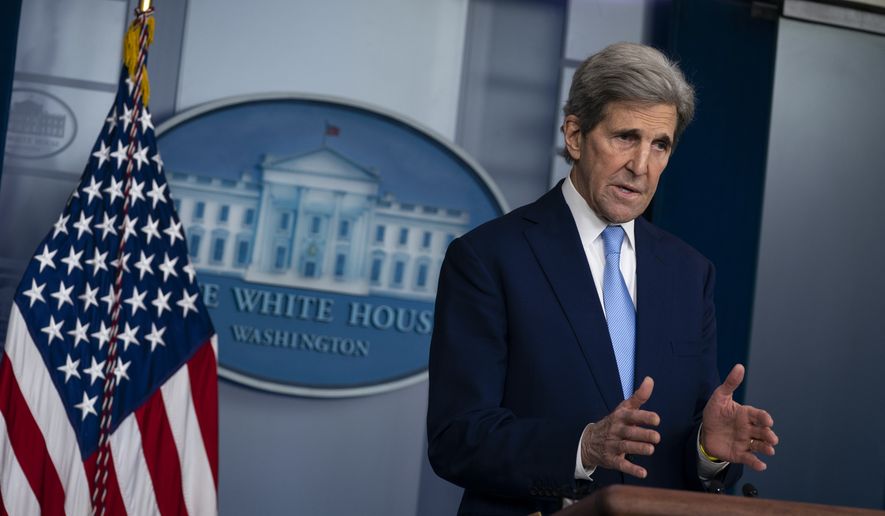The top Republican on the Senate Judiciary Committee is questioning how former Secretary of State John Kerry is avoiding conflicts of interests between his new role as the White House’s special envoy for climate and his long history of investing in green-energy interests.
Sen. Chuck Grassley of Iowa sent a letter to Secretary of State Antony Blinken asking for more information about Mr. Kerry’s financial interests. The letter comes after revelations that ethics officials have urged Mr. Kerry to divest his investments in green-energy startups and further pledge to abstain from working on certain issues.
Mr. Grassley argued it was vital for governmental transparency to know which public policy areas could pose a conflict of interest for Mr. Kerry.
As such, the senator requested the State Department provide documents “detailing its assessments of actual or potential conflicts” and whether Mr. Kerry had been given “any exemptions or waivers relating to those conflicts of interest.”
“It’s unclear exactly what matters Mr. Kerry has been barred from working on and whether he has received any waivers for specific matters that he would otherwise be recused from,” Mr. Grassley wrote in the letter, which was first reported by Axios. “The operation of good government requires faithful adherence to ethical rules.”
The White House did not respond to requests for comment.
After leaving the State Department in 2017, Mr. Kerry built a lucrative career as a consultant to some of the nation’s most powerful financial institutions. In 2020 alone, the former secretary of state earned $5 million as a global adviser to Bank of America.
Mr. Kerry also raked in hefty six-figure consulting fees for his work with green energy startups. The Rise Fund, a $5 billion venture capital that invests in environmentally friendly businesses, paid Mr. Kerry more than $125,000 in 2020.
The former secretary of state also served as chairman of the advisory board of Climate Finance Partners. The group brings together entrepreneurs and banking executives to create “innovative and globally needed finance solutions” to climate change.
Mr. Kerry, a multimillionaire, also invested heavily in green-energy companies during his time outside of government. As part of his appointment as the White House’s international climate czar, Mr. Kerry was forced to divest more than $15 million in stock.
Critics contend that Mr. Kerry’s prior work and financial relationships raise ethics concerns now that he once again holds a role with significant sway over political decision-making.
Most notably, the former secretary of state has come under fire for targeting financial institutions to mobilize investment and loans for green energy projects and technologies.
“I am in discussions right now with a number of our largest asset managers and major banking institutions with hopes that we can begin to understand where the capital could come from and how it can go to these sectors,” Mr. Kerry said this year.
One of the institutions that Mr. Kerry has purportedly approached is Bank of America, his former employer. The company did not return requests for comment.
Republicans argue the former secretary state is not just urging investment in a particular field. They argue that Mr. Kerry, in private and public conversations, is pressuring banks to expand their investment in green energy companies and curtail lines of credit to the fossil fuel industry.
Part of that pressure campaign is the threat of increased government regulation, according to a letter GOP lawmakers sent to the White House last month urging a probe into Mr. Kerry’s conduct.
“Putting your thumb on the scale in an attempt to force a transition away from fossil energy that is not supported by the market trends, guided by purely political motives, has the potential to destabilize U.S. energy security and raise prices for consumers,” the lawmakers wrote.
• Haris Alic can be reached at halic@washingtontimes.com.




Please read our comment policy before commenting.